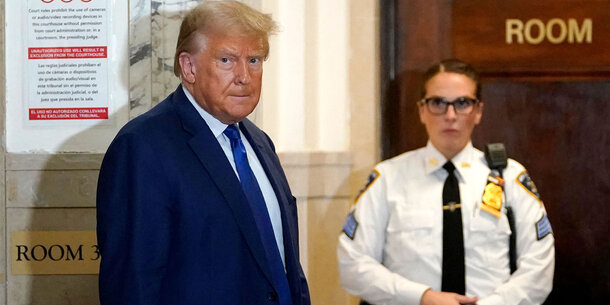Update: On July 18, 2024, the full Fifth Circuit Court of Appeals overturned by a 13–6 vote the three-judge panel’s ruling that Mississippi’s lifetime voting ban violates the Eighth Amendment’s prohibition against cruel and unusual punishment.
In Mississippi, people convicted of certain crimes, including passing a bad check for $100, can be stripped of their voting rights for life. That could all change: the full Fifth Circuit Court of Appeals took up a case challenging this Jim Crow-era remnant this week. For Mississippi’s faith community, this law is immoral, excessive, and should not stand.
Since I founded the New Horizon Church in 1987, I’ve imparted to our believers the need for mercy and compassion. The right to vote is inherent to participating in our community, for those in it and those returning to it. Without that right, we signal to our brothers and sisters convicted of crimes that they are not deserving of mercy, compassion, or respect. If we lose our ability to forgive each other, we are headed for a chasm. To me and many other Mississippians of faith, forever revoking the right to vote from members of our community who have completed their sentences is a form of exile and dehumanization. It’s also unconstitutional.
That’s why last month, the interfaith organization I’m part of, Working Together Mississippi, and 29 other faith-based groups and religious leaders from Mississippi, Louisiana, and around the country submitted a friend-of-the-court brief in Hopkins v. Watson, a case challenging Mississippi’s lifetime voting ban for people with past convictions. In August, three judges on the Fifth Circuit struck down the law because it violates the Eighth Amendment’s ban on cruel and unusual punishment. The state asked that all of the Fifth Circuit judges rehear the case, and oral arguments were heard on Tuesday. The court should affirm that Mississippi’s policy is so excessive and irreconcilable with our shared American values that it is unlawful.
Mississippi’s punishment for those who stumble stands in direct contrast to the teachings and values of faith communities in Mississippi and across the country. Christians, for example, believe that “[Jesus] saved us, not because of righteous things we had done, but because of his mercy.” In the Jewish faith, “the purpose of the laws of the Torah is to promote compassion, loving-kindness and peace in the world.” And in the Muslim tradition, God’s “mercy encompasses all things.” These religions also share a belief in redemption for those who have done wrong.
But throughout this country’s shameful past, state lawmakers — especially in the South — often exploited religion to justify Jim Crow-era practices that did not apply justice and mercy evenly to all people. As noted in the Fifth Circuit’s initial ruling, Mississippi first adopted its lifetime voting ban for those with past convictions as part of the state’s 1890 constitution, “in reaction to the expansion of Black suffrage and other political rights during Reconstruction.” The law sent a message to Black Mississippians that they were unworthy of forgiveness and incapable of redemption, while mercy and equality was reserved only for white society.
Since then, many parts of our country have moved away from the view that only certain people are deserving of forgiveness, and towards a more equitable approach to punishment that is aligned with the tenets of our faiths. This realignment is why a growing number of states, motivated in part by the faith community, changed their rules to allow more people with past convictions to vote. Among the states covered by the Fifth Circuit, Mississippi stands alone: Louisiana and Texas eliminated their permanent voting bans in 1974 and 1983, respectively.
Mississippians with past convictions are no less worthy of forgiveness and the opportunity for redemption. As Paul reminds Christians in Romans 3:23, “all have sinned and fall short of the glory of God.” But despite our faults — and we all have faults — our faiths teach us that we are worthy of second chances. Silencing those convicted of felonies by taking away their right to vote forever, no matter how upstanding a life they lead, is an act absent of mercy. It’s also cruel and unusual.
Bishop Ronnie C. Crudup Sr. is the president of the board for Working Together Mississippi, a senior pastor of New Horizon Church International, and the diocesan bishop of the Mid-South Diocese of The Fellowship of International Churches.


